Wenyen Gabriel plays for the cousin he lost and the country he had to leave behind
Wenyen means “wipe your tears” in Dinka, the primary language in South Sudan; that’s where Kentucky freshman forward Wenyen Gabriel’s family is from. A year before he was born, Wenyen’s parents had a daughter, their fourth child, who died in infancy. When Wenyen was born, his family named him such to wipe their tears away from tragedy and move on.
“Before I was born, I had a sister that passed away,” Wenyen told KSR last week. “The doctor gave her the wrong medicine. We were in Africa, so it’s not always that good with healthcare. So, my parents had me and as a child afterwards, to say ‘wipe your tears.’ It’s kind of been unique to me because ‘wipe your tears’ – I feel like for my family, this is what I’ve always been trying to do for them.”
Ten years later, Wenyen himself discovered the meaning behind those words. In 2007, his cousin and best friend Bol drowned in the Merrimack River near Manchester, New Hampshire after jumping off a bridge and swimming with some friends. Bol and Wenyen were as close as could be and the loss still resonates with him. In fact, he wears the number 32, his cousin’s old jersey number, in Bol’s honor.
“Every single day when I put it on, I think about him. I have symbols for him every day. But every time I see 32, that’s the first thing I think about.”
The first thing you notice about Wenyen is his smile, which may seem odd given all the hardships he’s endured in life; however, his smile is the physical embodiment of his name – perseverance and optimism not in spite of, but because of, the darkest moments of his life.
Wenyen was born on March 26, 1997 in Khartoum in north Sudan. His family is from South Sudan but fled to Khartoum – enemy territory – during the second of two civil wars that tore apart Sudan for 50 years. Two weeks after Wenyen was born, the family “wiped their tears” and moved on — literally. They sold all of their belongings and fled to Cairo, Egypt, where they spent three years in a refugee camp. Wenyen’s oldest brother Komot was six at the time and still remembers the upheaval.
“We needed to get out of the situation as quickly as possible mainly because there was a civil war going on. My dad couldn’t make it with us, unfortunately, we didn’t have enough money,” Komot told me via phone. “We were from the south, but we were living in enemy territory at that point. It just wasn’t safe for us.”
Wenyen’s mother, Rebecca Gak, tried repeatedly to relocate her family through the United Nations’ refugee resettlement program, but it wasn’t until his father was able to join them in Cairo that their application was approved. The family was relocated to Manchester, New Hampshire in 1999 when Wenyen was almost three years old. Manchester has a large Sudanese population, but the transition was still extremely difficult, especially since no one in Wenyen’s family spoke English.
“It was extremely tough, mainly for my parents,” Komot, who was nine at the time, said. “Settling in a new culture, leaving a bunch of family behind, learning the language, learning the system. It showed that it was very difficult very early on, even with the help of the Catholic church in Manchester. They would send us a sister who would help us with the transition, but there’s a language barrier there.”
Naturally, as Komot and Wenyen’s other older siblings Karima and Mabor went to school and learned the language and culture, their parents turned to them for help. Komot remembers this time very vividly.
“Our parents really relied on myself and my sister to go through the transition,” Komot said. “Going grocery shopping, even driving to the gas station, the simplest things you would think are easy to do were a challenge for us.”
As Wenyen grew older, he helped his mother study for tests to get her LNA (Licensed Nursing Assistant) license to be a nursing assistant.
“When she first got here, she was working a lot of factory jobs and stuff because education – it’s hard to get a good job here. That was a big step up when she got her LNA license to be a licensed nursing assistant. I remember helping her out with that when I was younger. Ever since then, we’ve been doing a lot better.”
Wenyen remembers the time he and his friends were horsing around and accidentally knocked a hole in the wall, and how his mother made him come with her to the Manchester housing authority to explain it; for most kids, that may seem like a punishment, but given the language barrier, it was a necessity.
“My mom, her English wasn’t good and she said, ‘You have to explain everything,’ she was telling me. It was like I was translating for her, even when I was a little kid. So, we’ve always been helping each other out,” Wenyen said.
Having your parents rely on you so much at a young age couldn’t have been easy, but Komot said the role reversal gave he and his siblings a unique perspective on life.
“It was really good for us to be able to do that. We understood the world at an earlier stage in life. I think it was really helpful for us. It really built our character. You lose a little bit of your childhood, but at the same time, you really get a good understanding of what the world is like.”
Wenyen and his cousin Bol were close; Komot called them “peas in a pod.” Wenyen and Bol’s families grew up together, starting in Sudan, then Egypt, and later in New Hampshire. Once Wenyen’s mother settled the family in Manchester, Bol’s mother followed. The two families were inseparable, spending all of their time together, especially the children.
“His mom is my mom’s older sister so we obviously grew up together and did things together,” Wenyen said of Bol. “Even at their house, Christmas, we always do those things together. When we grew up, he was one of my best friends.”
This is not an easy topic, but Wenyen speaks of his late cousin with pride and longing.
“When he was about 10 or 11, he went to go swimming, they were jumping off the bridge at the river. And the current got him,” Wenyen said quietly, staring at his lap. “I still wonder right now – he played basketball, he went to a different school than me because we lived a little far apart, but we never got a chance to play on the same team, and I just always wondered how that would have went.”
Experiencing death at any age is difficult; for a ten-year-old, it’s life-altering.“I was a kid, too, and that’s the first person I ever lost in my life,” Wenyen said. “To have him be my best friend and cousin at the same time, it was really emotional. For the whole Sudanese community too. It was real tragic. I had never seen anything like that, so many grown people crying and it kind of felt like the end of the world. To move on from that, I feel like he’s always there with me.”
Bol wore the number 32, so Wenyen wears the number 32. According to his brother, Wenyen also carries a picture of himself and Bol from their youth basketball days with him at all times. They were kids; sports was how they bonded.
“My last memory of Bol was a day or two before he passed,” Komot said. “We were playing in a park and we were just passing a football around. Me, Wenyen, Bol, my other brother Mabor. We were laughing and playing. I hold that memory close to me because it was in a good light. He went early, but I have a real good memory of him and I’ll never lose that memory.”
Losing Bol was hard for the entire family and the Sudanese community in Manchester, but Komot remembers most how difficult it was for Wenyen.
“That time was a tough time for all of us, but I think it hit Wenyen the most. He pretty much lost his other half at that stage in life. He had never lost anybody that close to him before. It was his first experience with death. It really touched home with him more than anybody. You can still see it in his eyes today.”
After helping their parents acclimate to American culture, Wenyen, Komot, and their siblings did their best to pull their weight when it came to education. Komot paid his way through college at the University of New Hampshire. He lives in upstate New York now, where he works for a wine company. Wenyen’s older sister, Karima, graduated from Boston College, where she got a full scholarship to play basketball. His other older brother, Mabor, attends the College of Coastal Georgia, where he also plays basketball. Wenyen’s younger siblings just started prep school, and – you guessed it – also play basketball. After working so hard to get her children through school, Wenyen says his mother can finally ease up a bit.
Considering Wenyen has spent 16 of his 19 years in America, you might think his connection to his Sudanese background wouldn’t be very strong; however, Wenyen says he feels a very strong pull to his homeland, including his relatives who are still there amid the chaos and conflict.
“A lot of my family is back at home. This is our first generation here and you have a strong connection back at home. My dad is back there right now and I have a lot of family members I haven’t met yet. I feel like I have an obligation to go back one day.”
As the eldest child in the family, Komot feels an obligation to keep his siblings interested and engaged in their background. He went back to South Sudan in 2011 to visit family amid what many are calling the Third Sudanese Civil War. He left Sudan at age six, but seeing that “virtually nothing has changed” upon his return broke his heart. It seems like every day, the news includes a story about the war in Sudan, and even though he only spent two weeks there as an infant, Wenyen feels a very strong pull to go back and help.
“To see what our country’s going through now, the war hasn’t really ended yet. They started a new tribal war and there’s still conflict. The opportunity that was given to me, I want that to be for the people back at home too. To start that, we need to fix that conflict. It’s easy to think about back at home when you have so many things going wrong. I want to be part of that. I want to go back one day and help my nation.”
Wenyen says he’s reached out to other Sudanese basketball players, such as Louisville’s Deng Adel. They met at an Adidas camp a few years back, and while they are technically “rivals” on the court, life is bigger than basketball.
“He called me the other day,” Wenyen said. “It’s all friendly. I think that Sudanese connection has really helped us out there. I think of him as a friend.”
Wenyen and Komot talk a lot about South Sudan. Wenyen has the flag hanging in his room. Komot is beyond proud of his little brother for not only his interest, but investment, in his heritage.
“I respect Wenyen for that. All of my siblings are like that,” Komot said. “Your heart is back home. It’s not like we wanted to leave; we were forced to leave. It’s not like we didn’t like where we were; it was unsafe. We have culture and family that we are missing out on because of where we are. That’s why you don’t forget where you come from.”
Right now, Wenyen is focusing on basketball, but even during our brief conversation, you could tell the wheels were turning on bigger, more important things in life.
“I see a good future coming because a lot more people like myself and younger Sudanese people, growing up in different places like Australia, London, all over the United States. If we all go back, we can make a difference.”
“I can’t even describe how proud of him I am,” Komot said of his younger brother. “It’s just his personality, it’s his curiosity, it’s his fear and being able to reach the hearts of people. He does it with humility. He’s very humble.”
“I know he’s going to be a leader one day. He’s going to be a great leader because of how compassionate he is. To lead people, you have to believe in those people. I think he believes in where he comes from, the people he comes from and I think one day he’s going to do great things for our family and whatever he does. Even after basketball, when all’s said and done, he has more things ahead.”
At Kentucky, Wenyen’s making a name for himself through his versatility and energy. He’s got a ways to go in terms of strength, but there’s no denying the 6’10” forward has tremendous upside, and if he continues to make big strides, he may not be at Kentucky past his freshman year. Going to the NBA would be another life-changing event for Wenyen and the Gabriel family, who was in the stands at Madison Square Garden last month to see Kentucky play Michigan State and the Barclays Center for the Hofstra game on Sunday.
“I feel like everything I do already represents them,” Wenyen said. “At every game, they’ll mention Manchester, New Hampshire or South Sudan. I’m always repping. You see Gabriel, my name, I’m representing my family.”
A family that’s survived, adapted, and, persevered; wiped the tears away countless times. According to Komot, that’s the reason for Wenyen’s wide smile: appreciation.
“We always look at the positives because it could be worse,” Komot said. “People have gone through worse than we did. Who are we not to take advantage of the opportunities we have now when there are people over there suffering, wishing and praying they could be in the shoes we’re in? No matter how bad it can be over here, we can’t take the opportunities that we have for granted. We are very fortunate to be where we are today. That’s why we’re always smiling.”








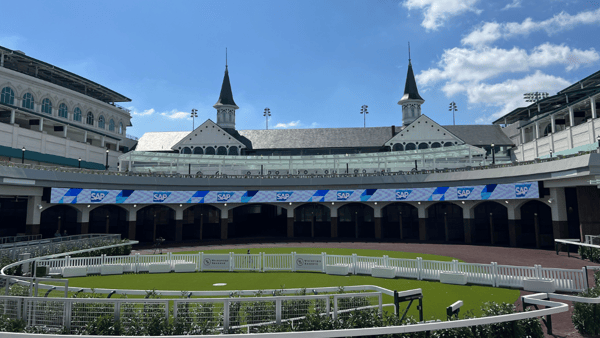

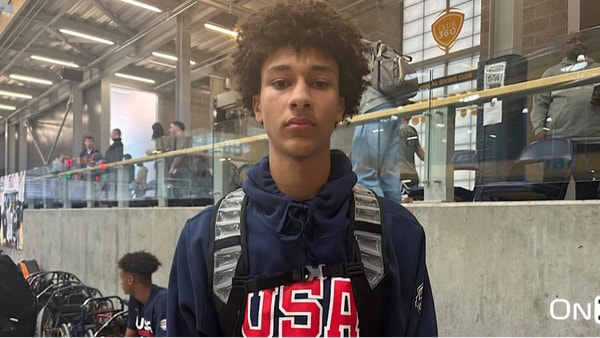
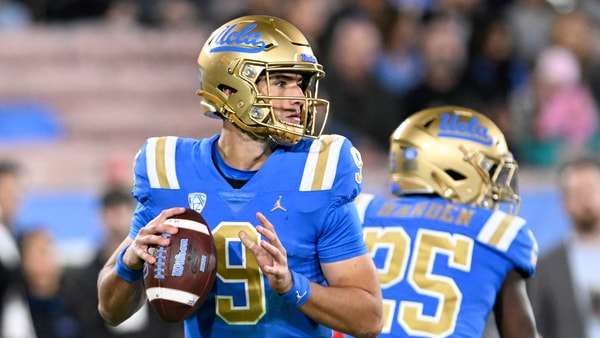
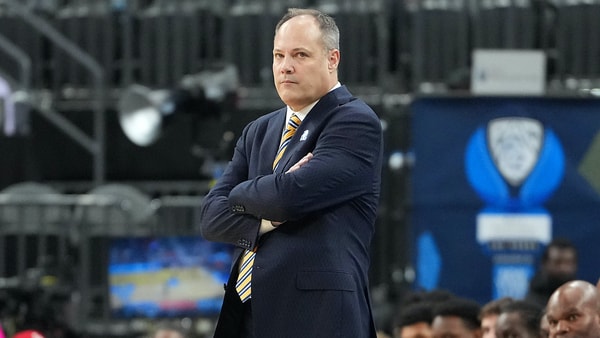
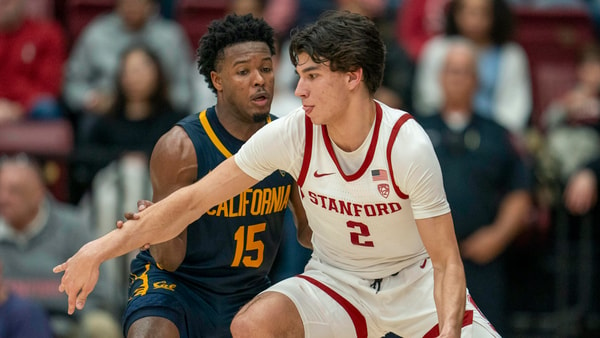
Discuss This Article
Comments have moved.
Join the conversation and talk about this article and all things Kentucky Sports in the new KSR Message Board.
KSBoard